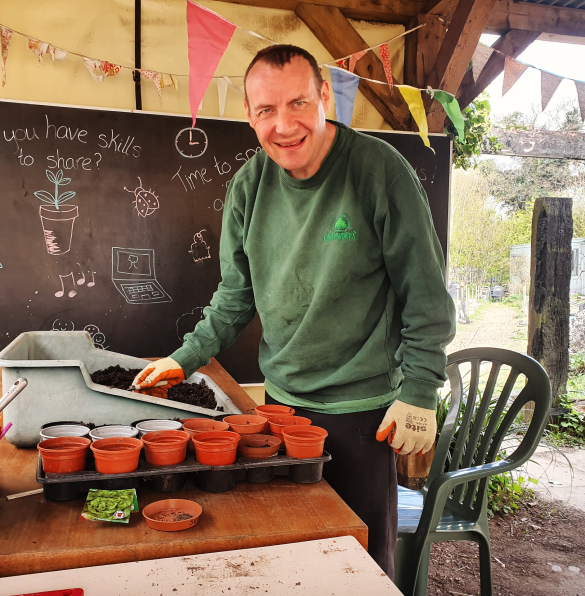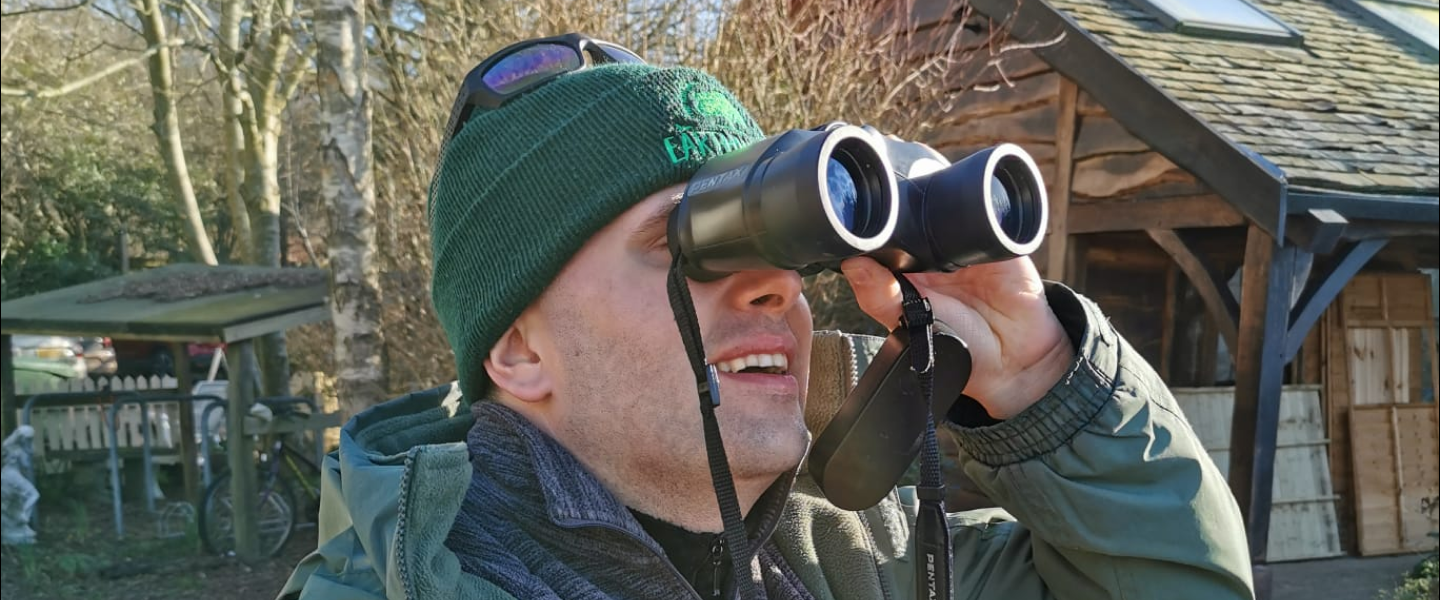
What we do
Empowering people to connect with the natural world, each other and the wider community through social and therapeutic horticulture and nature-based activities
At Earthworks, we support people with learning disabilities, alongside volunteers, to manage 3.5 acres of beautiful eco-gardens in St Albans, through the practice of social and therapeutic horticulture.
We grow fruit and vegetables using organic methods and build wildlife habitats using traditional techniques. Over 27 years, we have transformed waste land into beautiful eco-garden; maintaining a focus on sustainability in everything we do.
Our pilot project, Earthworks on Wheels, empowers Earthworkers to help the wider community by using the skills they have learned at Earthworks to care for gardens belonging to vulnerable people.
We offer purposeful activities and an education in horticulture, including projects such as our Gardening for Health and Growing Together, alongside onsite workshops for children and young people with learning disabilities, and our summer scheme for young adults.
We engage with our local community through our monthly stall at the St Albans’ Farmers Market, where we sell our produce we have grown in our garden and allotments. At our seasonal events and workshops, we champion social inclusion, protection of the environment, and sustainable living.
What is social and therapeutic horticulture?
Social and therapeutic horticulture is a recognised, evidence-based practice that combines three key elements: nature, social interaction and meaningful activity. Together, they have many benefits, including:
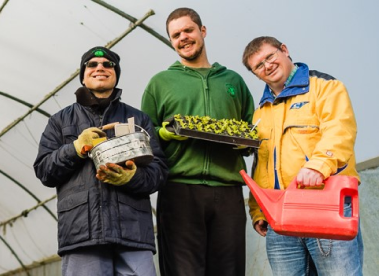
Social Context
- Part of a group
- Social contact
- Inclusion
- Sense of belonging
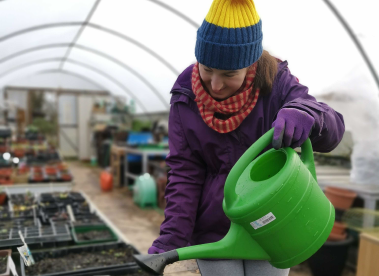
Meaningful Activities
- New skills
- Sense of achievement
- Responsibility
- Confidence
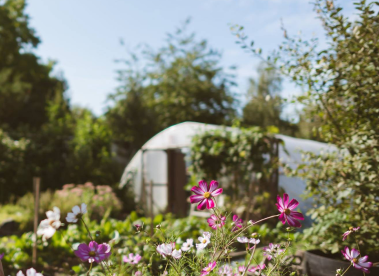
Outdoor Green Space
- Sense of calm and safety
- Reduced stress
- Psychological
- restoration
- Capacity for focus
Our projects
We offer various projects for our Earthworkers and volunteers to get involved in.
Our impact
Skilled staff support Earthworkers to experience:
- increased horticulture/life skills
- sense of purpose
- responsibility
- confidence and achievement
- social contact
- inclusion and belonging
- citizenship
- reduced stress
- boosted physical and mental wellbeing
